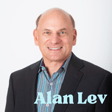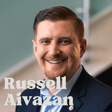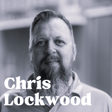Introduction to Brian Nabruin's Background
00:00:28
Speaker
Brian Nabruin is a real estate and development attorney, as well as a multifamily investor who's based in Greenville, South Carolina. He works alongside his father and brother to provide extensive legal services ranging from estate planning and property closings to business law and even criminal defense. Outside of his involvement with his family's practice, Brian is a principal at Van Rock Holdings, a private equity firm with a wide variety of real estate holdings and affiliated verticals in the Carolinas. Enjoy the episode.
Influence of Political Science and Internships
00:01:00
Speaker
I know we're already pushing it a little bit. But my first question for you, if you don't have any of your own before we start, is honestly about your decision to go to law school right out of undergrad. Sure. So I did my undergrad in Arlington, Virginia, so right outside of DC. And my junior year going into my senior year, I was a political science major and I had an opportunity
00:01:28
Speaker
to go and intern on the hill. And typically for policy side majors, you're either going to go work for a congressman senator, someone on the executive office side. Some sort of legislative is typically how it goes. Or you go into essentially private industry. In my case, I worked for a lobbyist.
00:01:53
Speaker
It was a fantastic experience. He had kind of just hung his own shingle and he had just started his company and it was kind of right place, right time for me and that he just needed bodies and that's not necessarily skilled lobbying labor. So he needed someone to truly help with some of the administrative functions.
00:02:18
Speaker
And so I had, because of that, a really good opportunity to actually do more than most interns that I was around and be associated with someone who owned a company and was doing things that kind of my classmates just didn't have any exposure to. And then through that process,
00:02:38
Speaker
you know, got a chance to ask him really pointed questions. How did you get here? What did you do to get here? And one of the first things was he went to law school. So that kind of just set the tone for me. My father was a warrior at the time, didn't practice much, owned a couple of businesses, but had his law license. So I was familiar with really the process. So after that, I decided
00:03:07
Speaker
that I was going to go to law school, really with the intent that I was going to go back into DC politics. And then when I got to law school, like most people that go pretty soon, what you wanted to do, the reasons for going to law school, the areas of law that you thought you'd practice in, changed immediately.
Shift from Litigation to Transactional Law
00:03:32
Speaker
So when I was in law school, I really wanted to be a litigator. And I set kind of my court work after my first year with that in mind, really looking for corporate litigation, complex business litigation. And then again, I had an opportunity to work with and kind of be around really good corporate litigators and ask them, how did you get here? What did you do?
00:04:02
Speaker
or what pass they went. Some were in court for judges immediately. So I went in court for a judge. Some were state prosecutors. So I went in turn to the state attorney's office, kind of just followed that path. And then in that process, similar to the lobbying side, I decided that that just wasn't something I really wanted to do specifically on the criminal law side.
00:04:27
Speaker
I liked litigation. I did not enjoy criminal litigation. And I got some exposure to that, which was fantastic. And then I kind of said, what is it that I like about litigation? Why did I like political science? What did I like about some of those things? And really it became kind of the deal, the nuances of the deal with things that I liked. So I moved pretty quickly into transactions.
00:04:57
Speaker
Gotcha. And so this is super relevant to people kind of my age still figuring things out. But when you were in your internships and asking your superiors, partners, whoever it is that you were working with these questions about what they were doing, what did that look like? I mean, did you feel comfortable asking questions right off the bat or did you work there for a few months until you felt comfortable enough to do that? So I think when you're young, you should take advantage of the fact that you're allowed to ask really dumb questions.
00:05:26
Speaker
and everybody just assumes you're young. I still do it, but now I'm not so young. But I still think dumb questions are the best questions, because you usually get more of an honest answer.
Navigating the Tough Job Market and Planning
00:05:38
Speaker
So for example, my last year of law school, I had a case, and I was fortunate that in Maryland, when I was going to law school, they had certain procedures and rules set up for law students to try cases under the supervision of an attorney
00:05:55
Speaker
But it gave me real world experience, real trial experience. And I had a trial in the opposing party. The defense attorney was a private practice attorney. And ultimately, I won. And that part was kind of irrelevant. But then afterwards, he was kind enough to give me some of his time and just talk both throughout the case and kind of what I wanted to do in life. And I asked him kind of a dumb question.
00:06:25
Speaker
What do you think the job market looks like for lawyers right now? And the recession was still in full force. And he said, oh, it's a bloodbath. If you're a new attorney, you're never going to get hired. Oh, no. Thankfully, he didn't know that I was a third year law student looking for a job.
00:06:48
Speaker
That was kind of a pretty big, eye-opening experience to me, which was, you know, just getting this law degree is really just kind of step by, figuring out what you're going to do with it. You better have a plan. So, him and along with those that I worked with, they were very good about, this is what I did, but what they did was kind of
00:07:13
Speaker
There's external forces in the job labor market that dictate some things and then really your passion. And I just, I wasn't passionate about criminal law. Um, so even just getting a job kind of felt a little defeatist to me at the time that I really go three years just to get. Sure. So you started transitioning into the more transactional side
Transition into Real Estate Law
00:07:35
Speaker
of law. How did you find yourself in the real estate niche? Sure. Um, so once I made the switch to transactional law,
00:07:44
Speaker
I really just started, sorry, a couple of things happened at the same time that were really my favorite. My brother was a judge advocate in the Marine Corps. And then him and my father, about a year before I graduated, decided to relocate to South Carolina. And my dad was originally from the South, so kind of going back was good for him. But he didn't practice law much. He was in the logistics business, and he had about four clients at the time
00:08:13
Speaker
They were in the process of selling their US-based companies. They're all overseas companies. And his main business was helping them, some of their FDA compliance and some of their other things. But the sale of their business just wasn't something he was used to or had experience in. So he called and said, hey, would you mind helping me with this while you're studying for the bar? I said, sure. I don't have anything else to do while I'm studying anyways, and I'm not very hireable without a degree.
00:08:42
Speaker
So I started helping him, essentially, as his paralegal, prepping those. And then I passed and got my license. And those four transitions are four more in which I had another opportunity to really sit front and center in a new market, in a place I wasn't really used to in South Carolina. I kind of got a chance to take the first six months with the license, having plenty of work
00:09:11
Speaker
to figure out what I wanted to do. At that point in time, I started looking around and saying, what industries do I think I could be successful in and do I like? And the M&A side was something that I just picked up pretty well. Had an opportunity to work with some really good attorneys in that process that helped me out and kind of taught me along the way.
00:09:38
Speaker
And then from there, I started picking up my own clientele after those eight transactions and started picking up my own book of business. And then really the interesting thing that happened, I didn't have much exposure until that point in time in real estate.
Building a Title Company in South Carolina
00:09:57
Speaker
From an operational side, from an asset purchase, or from a stock purchase agreement side, those were assets within a company sometimes.
00:10:07
Speaker
But real estate investing in and of itself wasn't something I had any exposure to. I was able to represent a couple of clients then that sold their businesses. And a lot of things they don't teach in law school. But one of the big things is when someone exits a business or sells the business similar to graduating law school, that's really the beginning of the journey for them, not the end. So I had clients that had done very well for themselves.
00:10:36
Speaker
sold their businesses, had a large lump sum of money, and they were looking around saying, well now what? And most of them decided that the best place to put their money was in real estate. So then they came back and said, can you help me in these transactions? I'm buying a triple net lease deal here. I'm buying the raw land there. I know I want to put my money somewhere. I don't want to just sit in the bank account, and I don't want to just put it on the index fund. This is what I want to do.
00:11:06
Speaker
So I had about four of those who I represented. And then from there I picked up a couple of other clients in the real estate space and then kind of sat down and said, okay, the M&A space, I like it, but how many people are actually transacting businesses for a hundred to $10 million range. Over $10 million, it's usually going to a larger firm and it's not business that I can live. So what business can I win?
00:11:34
Speaker
And then I kind of did the numbers back in the afternoon and really decided that I was going to be fighting against the current for a while on client acquisition when it came to M&A. But at the same time, that $5 to $10 million space in real estate, there was a ton. So I looked at it and then researched it a little bit more. And at the time, I was handling really just transactional contract work for the real estate. I wasn't handling what we would consider the dirt.
00:12:08
Speaker
I didn't even know what a title company was. And they said, hey, we see that you're associated with some large transactions. Have you ever thought about being an agent for us? I said, no, I'm a lawyer.
Goals and Transition to Private Equity
00:12:20
Speaker
And they said, so they had to explain to me what title insurance was, which, again, not something I was taught in law school. And then South Carolina is very unique in other states. In most states, you have your closing attorney, and then you have your title company. And typically, they're not related.
00:12:39
Speaker
In South Carolina, it's the opposite. They're almost always related. It's almost always the same. So in South Carolina, there's really four main parts of the transaction that an attorney has to do or supervise. That is handling the settlement, reviewing title insurance, escrowing and recording the actual fee in transactional documents. So in South Carolina, especially on the residential side, with a few exceptions, the attorney acts as the escrow agent
00:13:09
Speaker
the settlement agent for both parties, the title reviewer and the title insurance provider, which is huge that they do all of those things. So once I kind of looked at that and then I took again a business approach, a lot of things that I was lucky enough to learn from some of my clients and said, okay, what's the most volume here in the business side? Should I be representing these large $10 million transactions?
00:13:37
Speaker
or should I do $100,000 transactions? And from there, I've built my title company. That's been about six years now. I'll do $100 million of real estate transactions now annually, both on the residential and the commercial side. So it's been apparent of both. Is the title company, has it been kind of engulfed by your own firm, or is that a separate entity altogether?
00:14:07
Speaker
So it is our firm. So I am an agent of two global title companies. As of today, everything runs through the firm, which is pretty unique. So other states, it's the exact opposite. Some states is actually illegal to own both the title company and a lot.
00:14:29
Speaker
In South Carolina, it's pretty much required the way things are done. You could be a real estate attorney and just own a title company that handles title insurance. And I guess technically in some sense, you could just not be a real estate attorney and provide title insurance. But because the attorney has to do so much in South Carolina, it wouldn't make sense for an attorney to use a third party title company.
00:14:56
Speaker
unless it was a case like me where I was outsourcing that title review itself to another firm.
00:15:04
Speaker
You're also a leading member of a private equity firm, though, where you're doing multifamily investing and bill to rent development. Could you speak a little bit about that and how you got involved? Yeah, so I've been practicing law about 10 years now. And so about five years ago, you know, I think it's really important for any kind of anybody, especially if you're
00:15:33
Speaker
to actually set goals. It's one thing to kind of talk about what you want to do, but to take the time. So let me back up and say, when I was handling a lot of M&A stuff, I was also handling kind of startup companies, getting certain companies ready to be sold. And the interesting thing to me was how many people I was talking to, it was kind of like two sides of the aisle.
00:16:05
Speaker
plan to do and they were going to do. And then there was this other group, a very small group, that would literally come in with like a binder or paper or an outline of what they are going to do. And I don't necessarily know if writing it out is that big of a difference, but there's certainly a difference maker from the person that talks about it, the person that sits down, cares enough about it, and plans it.
00:16:29
Speaker
And when it came to the sale or the success of the company, it was very easy to see who was going to be successful and who wasn't, regardless of what I knew or didn't know about business just by their prep work. So with that being said, I've taken that approach and really learned from it and not just set goals, but also set plans. So about four years ago,
00:16:54
Speaker
I had goals and some things I wanted to accomplish in my professional career, and I met all those goals. And on a personal level, it was a little defeating in that I don't think it's ever good to meet your goals, because then you're not thinking high enough. And I did. And so then it was a question of, OK, do I extend those, make them larger? At that point in time, I pretty much done a transaction in every county in South Carolina.
Journey from Flipping Houses to Rental Properties
00:17:24
Speaker
I was closing real estate, multi-family, residential, large funds, investment deals, development deals, everywhere. And I was entitling land for others, mixed-use developments, kind of taking it from raw dirt all the way to permitted approval and then handing it back to them. So I had gotten the chance to do a lot, which was great, but then what was next? And the question for me
00:17:54
Speaker
And, you know, some of the basic math things in law school they don't really teach you is, you know, if you have these income goals or these goals that I want to make X amount of money, dollars, on the professional service side, you know, your asset or your resource is your time. And so, you know, if you want to make, let's say, a million dollars and you, you know, bill it $250 an hour, you can divide that and figure out how many hours you actually need to fill.
00:18:21
Speaker
which is probably only 50% of the hours you work. So if you want to make $2 million, you better find some more time, or you increase your hourly rate, which means that you're probably going to lose your price. So you play this game all the way. And that's what most attorney, everybody in the professional service space that we found, either an hourly approach, kind of does. So I sat down, and I said, do I want to expend more time and effort in growing this now
00:18:51
Speaker
knowing that I'm going to have this bell curve of work. And really what I got to is I liked the business of growing the business of real estate and my title company more than I liked being a practicing attorney. And that took me about three years to really come to grips with because you spend all this time, you do all this work,
00:19:18
Speaker
just to say, maybe this isn't what I actually want to do. And then if you're successful, it's even more difficult to say no to something that you're having success in. So about four years ago, I positioned myself to, OK, let's build out the company on the real estate side, but also I want to go and pursue some things on my own. And that's what I started doing. Gotcha.
00:19:47
Speaker
Is your, uh, is your family, your father and brother also involved with your real estate? I don't even want to call them. Yeah. So, um, you know, I flipped the house like six or seven years ago. Now my dad was involved in, uh, he invested with me on it. Uh, again, I didn't know what the burger method was. Uh, and that one, um, I walked into a house that was supposed to
00:20:17
Speaker
New fresh coat of paint, turn around and sell it the next day. And it was flooded, and it was damaged and destroyed. A lot of rookie mistakes on my end. And because of that, I didn't have a budget at that point in time to have a labor crew come in and do a lot of work. So I just had to do it myself. It took about four months on the weekends. How many lawyers does it take to turn a light bulb? A lot, if that's the answer.
00:20:44
Speaker
So it took a long time and I ended up, because it took me so much time, I didn't sell it just from a current on investment kind of standard. I said, I need to just rent this for a year. And I've owned that property now for about six years and it's been the best performing asset I've ever owned. Similar to most people, I was able to refinance out all my money plus some
00:21:15
Speaker
a couple of hands-on things with my family kind of there. And then they've invested in a few projects with me, some on the rental, some on the development side. But about two years ago, kind of the scale and velocity of which I was doing stuff, I had to kind of go and look at how to grow that business.
Mentorship and Skill Exchange for Real Estate Success
00:21:41
Speaker
And sometimes I think the friends and family are great
00:21:45
Speaker
I think they can also kind of be a crutch. And then your only limit is kind of their capital. And that should really be how you're making decisions on deals. Right. Right. So when you were looking, I guess, to really grow your interest and involvement in real estate when it comes to the multifamily and when it comes to your development experience, how were you then finding mentorship? I don't even know if that's what it was, mentorship, inspiration, anything like that.
00:22:14
Speaker
So I sought it out and that was very much a part of my plan. So to the extent that, you know, I was approaching real estate investors and developers essentially offering a legal side of things in return for them teaching and coaching me a lot of things. Now I can keep you out of trouble on the contract. You explain to me how I calculate linear feet for a lot development deal.
00:22:43
Speaker
And that was kind of the border system that was going on. And some of them have invested with me recently on some projects and they've been very successful where they've taken more of a passive approach. And so it's been good. I've been very lucky to surround myself with much smarter people than myself. And so that's kind of
00:23:11
Speaker
how I've sought them out. And then from there, um, there is a snowball effect to that where people want to talk. And so some of those guys have been good about talking to others that, Hey, I'm working with someone working with Brian. He's doing a really good job. And then making yourself available to those conversations has been important. Gotcha. And so you're saying then that the gross majority of your real estate education has come from
00:23:41
Speaker
pursuing it from other professionals. Or did you do any sort of reading, any mastermind joining, anything like that?
Reflecting on Career Paths and Legal Experiences
00:23:49
Speaker
Yes, I'm in currently one mastermind now. And it's been good. Yeah. And then, you know, any book I can read on real estate, any podcast, I mean, at that time, my my wife, my emails are from Virginia. And so my wife and I were pretty much driving back lots of
00:24:10
Speaker
That's about an eight-hour drive. And so I was getting at least one or two audiobooks a drive-in. So the real estate ones were good from an actual subject matter expertise kind of thing. But the best books that I've read have been more general. I'm reading Good to Great for a second time now.
00:24:40
Speaker
Those things, I think, have been more beneficial to me. The one thing law school teaches you that I don't think is emphasized enough is not the answer to your questions, but it's how to find the answer to your questions. That is, I think, the crux of being a lawyer is figuring it out in some sort of systematic way. So taking that approach is kind of what I've done pretty much
00:25:09
Speaker
Yeah, understood. You're in a position now and it sounds like you have been for many years just hearing about kind of how you got involved with real estate in the first place.
00:25:18
Speaker
Um, if you could start your career over and wanted to get to the same exact situation that you were in now where you are a, like you're significantly investing, right? Are you happy with having chosen the course of law to get there? If that makes sense, or do you wish that you'd kind of been more of a heavy investor that you'd gone the finance route? I don't know. Does the question make sense? Yeah, that's a great question. Uh, I think about that a lot. Um,
00:25:48
Speaker
On one hand, getting to this end place, if I went back and did it again, I think I probably could have gotten here faster making different decisions. At the same time, there's been so many deals or issues or things that have come up.
00:26:08
Speaker
that I have been fortunate enough to know exactly what to do because I've represented someone who had a conflict, and this is how it should have been resolved. And you can almost money more than put it back, those things. But for my legal side, but for that kind of journey, not all of it's real estate based, I wouldn't have known those answers either. But I think it goes both ways.
00:26:38
Speaker
It's interesting. So in my market, if you had invested in my market in 2016, you could have bought a single family home near the city for like $50,000, which is now worth $300,000. So timing is everything. So I know people that are five years older than me that had that journey, and they just happened to be right place, right time in the 2016 world.
00:27:07
Speaker
But I don't think you can control that. You control the time you have and what you're learning in that. So certainly, if you go back, I think I could have done things faster, more efficiently. But at the same time, this long route to kind of where I am, I think has had some. OK. And on this note of kind of reflecting on your career, I'm reminded by something you said earlier in this episode. When you were in law school and realized that the transactional side of law
00:27:37
Speaker
appeal to you more than litigation.
Preference for Transactional Law
00:27:40
Speaker
Why exactly, why was that? Yeah. So, you know, a couple of things. One is the internship or externship that I had in law school. I got to do two things really my last year, my third year. One is I got to prosecute cases. I was speaking a couple hundred, tried a little over 10, which was a great experience. And I got to click for a judge.
00:28:08
Speaker
I've been very fortunate on circumstance. So I went to intern with the judge. She was really just looking for an intern. About a week after that, his law clerk took a job and was moving. So he was without a law clerk, kind of in the middle of the semester. So myself and another intern got to sit in kind of that role. So I got
00:28:31
Speaker
really good experience there and at the same time I was prosecuting cases. So in that, you know, I got to see a lot. Criminal law stuff, family law stuff, and then plaintiff's work and the contract disputes. And I really got to kind of narrow it down, what I liked and what I didn't like. And I kept gravitating back towards, you know, the deal itself, putting some of the pieces together and identifying kind of
00:29:01
Speaker
where this needs to go for everybody to resolve the issue. Some of that was on the settlement side, and some of that was just adjudicating it. And so even then, I don't think I had, hey, transactional work is what I wanted it to be exactly. But that coupled with the opportunity to work on the M&A stuff with my dad, kind of fleshed that out. OK. Yeah, that makes a lot of sense.
00:29:31
Speaker
And what other transactions does your firm specialize in other than title stuff? Sure. Yeah. So now we are a full service transactional firm.
Full-Service Transactional Firm Overview
00:29:42
Speaker
So we handle everything from international business compliance logistics, FDA compliance. That is all kind of in my dad's wheelhouse.
00:29:52
Speaker
As he slows down, in a lot of cases, work we take on there slows down. We do another associate attorney now that does new business development, transactional work on M&A, so she's taken over a lot of my clients, and then she also does corporate complex litigation, still in that business field. And then on the real estate side, we have a whole team that handles residential
00:30:20
Speaker
title and escrow enclosures, and we are another team that handles our commercial side. And so my day to day really is just managing teams as opposed to. Yeah. Do you have any insights for aspiring lawyers who might want to work with family members? Is this situation that you're currently in kind of just as you expected it to be or different in some insightful way? So a couple of things. My brother and I are six years apart.
00:30:51
Speaker
And I think that's helped in that we are one, two years apart. So we didn't grow up fighting with each other. By the time I was in high school, he was in the Marine Corps. So that helped. The other thing is we were very open and kind of transparent with each other, which means that when we started this, as we were figuring things out, we kind of made clear delineations of which route I was going to take, which route you were going to take.
00:31:18
Speaker
And doing so kind of helped set the stage for not kind of stepping on each other's toes.
Working with Family: Boundaries and Roles
00:31:29
Speaker
How he runs his side of the business is very different than mine. The past five years I've been in a really high growth state. He has other things that he likes to do outside of work. So that's really helped us kind of keep things on an even keel.
00:31:48
Speaker
And then, you know, obviously working with our dad, he's grumpy. He's just, he's grumpy and we all agree on that. Yeah. Yeah. Gotcha. That's awesome. Do you, I guess for people who are in late stages of college, who are applying to law school, or maybe they've just started law school themselves, is there anything that you didn't anticipate having to deal with as a real estate attorney that students should prepare themselves for?
00:32:15
Speaker
So I think law school in general does a terrible job of teaching students real estate law and then transactional
Self-Learning in Real Estate Law
00:32:25
Speaker
law. I think if you went and you pulled the amount of three hours and said, explain to me how someone buys and sells a home. I think realtors have kind of this catchphrase, and I think there's some truth to it, which is the home is the most expensive or important transaction that you'll ever have in your life on a buy and sell side.
00:32:45
Speaker
And I agree with that. And then so if you're going from that to a professional service provider being a lawyer, how do you not know how this thing goes from, you know, MLS listing to the courting deeds, escrow and cars, and disbursement? But yet we kind of know the criminal law side of the back of our hand. I think that there's some big misses there in kind of the educational approach. And I get that there's, you know, every state is different.
00:33:15
Speaker
And how it does it but the transaction by and large is very similar sure so You know I looked up a couple of years ago If there was even electives I could have taken at my own a lot to see if there was a real estate transaction and there was I think it was offered one time in the three years outside, so So I think you know
00:33:43
Speaker
You're going to have to figure out how to get there on your own. I just think if you go to law school in real estate or somewhere where you want to be, you're going to have to figure that out.
00:34:00
Speaker
I was gonna ask if you thought it would be advantageous for a student to take their real estate examination test to get licensed or is that sort of not the kind of knowledge that would really help them long run? It's more superficial than anything. For like as a realtor? No, I mean I don't think that would be
00:34:23
Speaker
I think any person that graduates to law school should be able to take that exam and pass because most of it is contractual understanding and then some fair housing things, but that's still statutory. So I would say the dirt position is more of the nuanced approach.
00:34:47
Speaker
So it's more nuanced, also the insurability of it. I think understanding what title insurance is is a great precursor to understanding what insurance is in general, in the sense that whether you're going in and representing an house counsel for a large insurance company who's insuring houses, property, trucking, lanes, whatever it is, and then understanding the title insurance and kind of the differences between the two,
00:35:18
Speaker
That understanding, I think, is an understanding that you're still selling a widget. At the end of the day, it's still a project, a product, and it's a risk aversion. In some cases, it's just required. In real estate, it's required by your lender. But for your lender's requirement, most people wouldn't buy title insurance.
00:35:40
Speaker
Yeah, that definitely sounds like a more valuable education to add to your resume. So now I'm thinking from the perspective of somebody who is, again, like at the beginning of their law school journey, who was thinking about transitioning into real estate as like a way to make side income or eventually get into what it is that you're
Role at Van Rock and Property Management
00:35:57
Speaker
at the scale that you're operating. When did you start investing in real estate at all? Like you mentioned flipping some houses with your family, but when did that start? And have you ever done rentals or anything kind of peripheral to that? Sure. So as of now, I own Danrock, co-founder of that. We're a real estate asset management company. So we have right around a thousand doors that we own in
00:36:27
Speaker
So we own an asset management company, an property management company, maintenance and construction. So we buy, build and operate single family and multi-family. So that's kind of where we are now. How I started in that was really, you know, I had positive cash flow and I was successful on my kind of day job and I needed to do something with that money.
Tax Benefits and Real Estate Investments
00:36:56
Speaker
And it seemed like a smart approach that of all the people I knew that were successful selling the businesses rolled into real estate, they probably knew something that I should figure out. And then I started learning about depreciation and some other things. So really I got into it more as a tax benefit, some aspects. And it's interesting. So at that point in time, I think, you know, regardless of whether you're a doctor, if you're high net worth or you're doing well on the financial end, you kind of have two choices.
00:37:26
Speaker
you can take, but some, I don't think there's really a passive approach, but you take kind of a semi-passive approach and just invest. So there was a company Fundrise that had just launched. So I invested some of my money in that so I could see what it looks like to actually invest in real estate, get the cash flow analysis, review reporting. And then I said, you know, I could probably do this. And it was a lot harder than I thought it would be.
00:37:54
Speaker
That was a good experience there where I started kind of, I don't want to call it passage because I think, you know, you should monitor your money and put it on for it. But in that sense, you know, I wasn't handling the operation. And then from there, I decided to flip the first house and then that went so poorly, but went so well, I bought another one.
First Experience with Real Estate Syndication
00:38:19
Speaker
And then that one was just a rental immediately.
00:38:22
Speaker
So those were the first two rentals I purchased. And then this really interesting thing happened. Again, I didn't know about it at the time. But 2016, the Jobs Act was passed. It opened the door for investing in syndicating real estate much more. So I was telling people about the two rentals. And they were in the real estate industry. And they were asking, what'd you buy it for? What'd you put into it? How much are you renting it for?
00:38:52
Speaker
I started giving them the answers, and they said, if you ever find anything else that you want to do, let me know how we'd like to invest with you. Sales is not my strong suit, and it probably never will be. I didn't realize really what that meant, but what it meant at the time was that those two houses were doing very well. And if you're doing good on those two, maybe you'll be good on the third. And so the next thing came up, there was about 14 houses.
00:39:22
Speaker
It was kind of a baseball card pack of, you know, you get what you get type of thing in these houses. And I told a friend of mine one day, I said, hey, I really think that where these are and what's happening around the area, these are going to be worth a lot for five years. If we can get them to just cash for now and we just hold them for five years, we'll be really happy. And he said, okay. He said, you know, that's a good idea.
00:39:51
Speaker
what do you need from me?" And I said, nothing. I was just kind of just telling you. And he said, well, would you mind if I invested with you? I said, sure. So then I had to figure out what a 506B offering was and start to do that process. I had to go and meet with another attorney, get a PPM and everything else and really understand what it was that him and I were talking about, which is a syndicated deal.
00:40:15
Speaker
And then my dad came back and said, well, don't leave me out. And then another person came out and said, don't leave me out. And the next thing we knew, I was over-capitalized on my first fund. That's beautiful. And so we bought that. And that was, we still own half of them. So we did the burn method there. We renovated a few, got it 100% leased, and we financed all our money back.
00:40:45
Speaker
And now we're taking some more money from cash flow, updating a few and selling them. And we'll probably have, I think, seven at the end of the year. We won't have any debt. We won't have to figure out what we're going to do then. So it's worked out really well. But in the process of that, the broker came back to me and said, hey, how's that going? I said, oh, it's going great. I told him what we're doing. He said, would you want to buy something a little larger? I said, well, sure.
00:41:15
Speaker
And he said, great, I have 121 houses. And I said, I have no idea what I'm going to do. How am I going to get the money for 121 houses?
Raising Funds and Adapting During COVID
00:41:25
Speaker
And it took me about 48 hours to raise the money for 121 houses. And so that was my second fund. And so that one closed.
00:41:43
Speaker
we closed the first year to the lockdown happened for COVID. And then so we extended three months to see what the world was going to look like. And then we closed. And so didn't really know how that was going to go one way or the other, but 40% of the units were section eight. So I thought, okay, at 40%, you know,
00:42:08
Speaker
I can at least cover the debt service on this if something really bad happens. Because at that time, people were deferring or not paying rent, and a lot of things were happening. But we maintained a 95% occupancy and a 90% collection rate all through COVID. That's incredible. Yeah. And so a couple of things. One is we didn't raise rents. And I think that's something that a lot of guys, when you're seeing it now in real estate,
00:42:37
Speaker
both on the multi-family and single family. I'm going to buy this asset for $100,000 and it rents for $800, well below market value. I'm going to increase the rents to $1,200. Nobody factors in the fact that it's going to cost you $15,000 to renovate it when this person leaves to get the next person in, and that $1,200 person is one bad day away from being delinquent.
00:43:04
Speaker
and you spend all this money, it's going to take you five years just to recoup your initial cost. But if you have kept that person and maybe raised $50, if you have saved $15 and granted on the IRR end and the back end, it might not look as good. Cash is kind of still king. So we were pretty sticky on our rents the first eight months of ownership, kind of weathered the COVID storm and then gradually decreased.
00:43:33
Speaker
But of that portfolio, we've pulled out so far 10 houses. And we're selling them for about 200% of what we purchased it for. And we have about 15 more that we'll sell between now and next year for about 200%, 250% of what we purchased it for. So those worked really well so far. And then in that process, there was kind of an aha moment, a lot of things happening in my life at the same time.
00:44:04
Speaker
where I sat down and my wife and I had kind of that conversation, which is, I think I can do really well with this.
Focusing on Real Estate: Family Influence
00:44:11
Speaker
I know I can be a great lawyer. I know I can do that, but I really want to do this. And her position was, this is something you want to do. And so about three years ago, I really pivoted hard, hired some associate attorneys to take over with my clients, my existing book. And then really went out.
00:44:33
Speaker
both on my own, had some good partnerships on what I was going to do. I was kind of just figuring it out as I went. And then a little over a year ago, I partnered with another individual to form, really, Van Rock, our company. And so far, that's been a fantastic thing, that process, that kind of marital partnership.
00:44:57
Speaker
our core values and really what we're looking to achieve and why, really lined up, which has allowed us to grow, you know, pretty fast in a initial period of time.
00:45:08
Speaker
I have two questions for you, one of which is actually relating to partnerships. So I saw on your website that Van Rock, I mean, I mentioned this previously in the conversation, but you guys do development ground up and you also do infill development.
Development Partnerships and Strategic Approaches
00:45:21
Speaker
But do you have any sort of construction background yourself? Because I mean, naturally, that is a pretty big.
00:45:29
Speaker
reason why a lot of people don't even consider doing development. They don't feel like they have those foundational skills to really be successful and navigate the actual construction process. That is a great question. I do not. From a vertical standpoint, I don't. My legal background is really getting the land ready for someone to develop the road infrastructure and make someone else build. What I did is I went out and found someone who had that experience.
00:45:58
Speaker
built and renovated and flipped thousands of houses in his career as well on the multi-family side. What he hadn't done, backing me into my partnership with Stan, it really started as another investor and developer he was talking to about a problem. The conversation got
00:46:29
Speaker
So we had a conversation on a specific site, and the site was kind of caught in this municipal limbo, where the county wanted a road to be expanded, but it's a county road, and they didn't want to pay for it. And the city wanted to provide the sewer and utilities, so they wanted property annexed, but they didn't want to pay for the road. So he was kind of caught in this what do I do scenario.
00:46:59
Speaker
And on top of that, he was limited to, I think at the time, 10 units an acre for about nine acres of property. And so I came back and said, you know, if you buy this small piece of property right here, it gives you access to this road, which based on this code means that there is no density on it. So you can triple the density, which would triple the value. And on top of that, you can then take it to the city and put together a package where they would take over
00:47:32
Speaker
In return, they probably helped us with this road situation, which happened. So that was kind of the first deal we worked on together on a partnership approach. And we're getting ready to start that project next year. So that was really the first one. But then some other things that he was doing, he was really successful building houses kind of in fill lot. So I find a lot in the house, sell a house.
00:48:01
Speaker
or find a house, renovate the house, sell the house. Those are two really great things, but they are really negative back ends. Those are tax implications. The way that he was doing it, the way that it was structured, there's no supply chain. So again, if the house is a widget, if you build a widget, it's the worst thing you can do in the widget world is not know when the raw material is going to come from the next one, which is relaying.
00:48:30
Speaker
So instead, my position to end was, instead of building 10 individual houses wherever they may be, let's go find a site that allows us to develop and build 10 houses in one place so that we can control our supply and demand supply chain. So we started doing that. So we'll build 20 houses this year on our first year, and then we are scheduled by now with 50 lots that we own in the process of under construction at some point.
00:49:00
Speaker
where it's entitlement, horizontal, or vertical. Sorry, these are individual homes or sort of like a subdivision layout? Both. So we have three products. One is a single family home for sale. One is a single family home for rent. And another is an account for rent and for sale. And so by finding a site, so that's the other thing is if you just find
00:49:27
Speaker
land wherever it comes to the lots. You're kind of having to find a product to fit there. As opposed to if I take five, six acres, I can fit five, six acres to my product. Which, you know, if you build the same house 20, 30, 40 times, your cells are going to be better out here. Your project management's going to be better. Your timeline's going to be better. And that widget, essentially, is going to get better and more efficient. So that's kind of the approach that we've taken. And then it doesn't necessarily matter
00:49:58
Speaker
there's some changes you can make to it house-wise, but it can be a rental or for sale product and then the math dictates rather than anything else. Sure, so smart. Do we have time for one more question or do you have to? Okay. One thing I wanted to ask about previously when you were talking about raising money for projects is creating like one fund at
Fund Management and Investment Strategies
00:50:21
Speaker
a time. Is that the case for your entire portfolio right now or would you consider opening like an evergreen fund?
00:50:28
Speaker
Um, so everything I've done so far has been a syndicated deal, or what I would consider to be a syndicated fund, which is I've identified the asset, you know, a couple of, like, so 121 houses or 121 assets, and they were identified with one fund job. I've done the same approach on apartments where there's been a couple of apartments we've identified, went under contract, put a fund together to just buy those. They've all been single-trooper entities.
00:50:59
Speaker
with the purpose of owning those specific assets. And frankly, that has been, the reason I've done that is a lack of kind of experience, I guess. And I wouldn't say credibility, but we've just now started exiting. So when you talk about an evergreen fund, you know, or if I want to raise $50 million to buy Class B multifamily value at, what have you sold?
00:51:27
Speaker
And if my answer is that is nothing, I don't think that that's a really credible way of starting the conversation. So we just did our first institutional capital deal with about 178 in the department complex. And we assumed the debt on that. So in 2023, the only thing we purchased were assumed debt deals, which meant that we brought a ton of capital. It's usually like a 50% leverage. Yeah.
00:51:57
Speaker
Sponsorship side for a waterfall approach, not a great back end deal for us, but a really good deal for us to kind of expand and then also invest in on the LP side ourselves as well. And then cash flow. So going forward in 2024, I anticipate that there's going to be more multifamily projects available, class B value add that we can get better pricing on.
00:52:27
Speaker
We flirted with the idea of building some ground-up multi-family construction in that 3% interest rate environment where everybody wanted to build. The cost of capital in that world and the risk assessment on it just never really kind of penciled for us. So we had two projects at the time. One we terminated.
00:52:55
Speaker
Actually, we have three. One we terminated, one is an infill site that will be some sort of multifamily, high density in the city of Greenville. And then the third, we pivoted to a low density built for rent because we can take our townhome product that we know we can put your coleslaw and fill it rather than having the third party out that construction site. So I think that will be our future. Oh, that's so exciting.
00:53:27
Speaker
All right, this has been, this has been fabulous, really. Thank you so much.




















